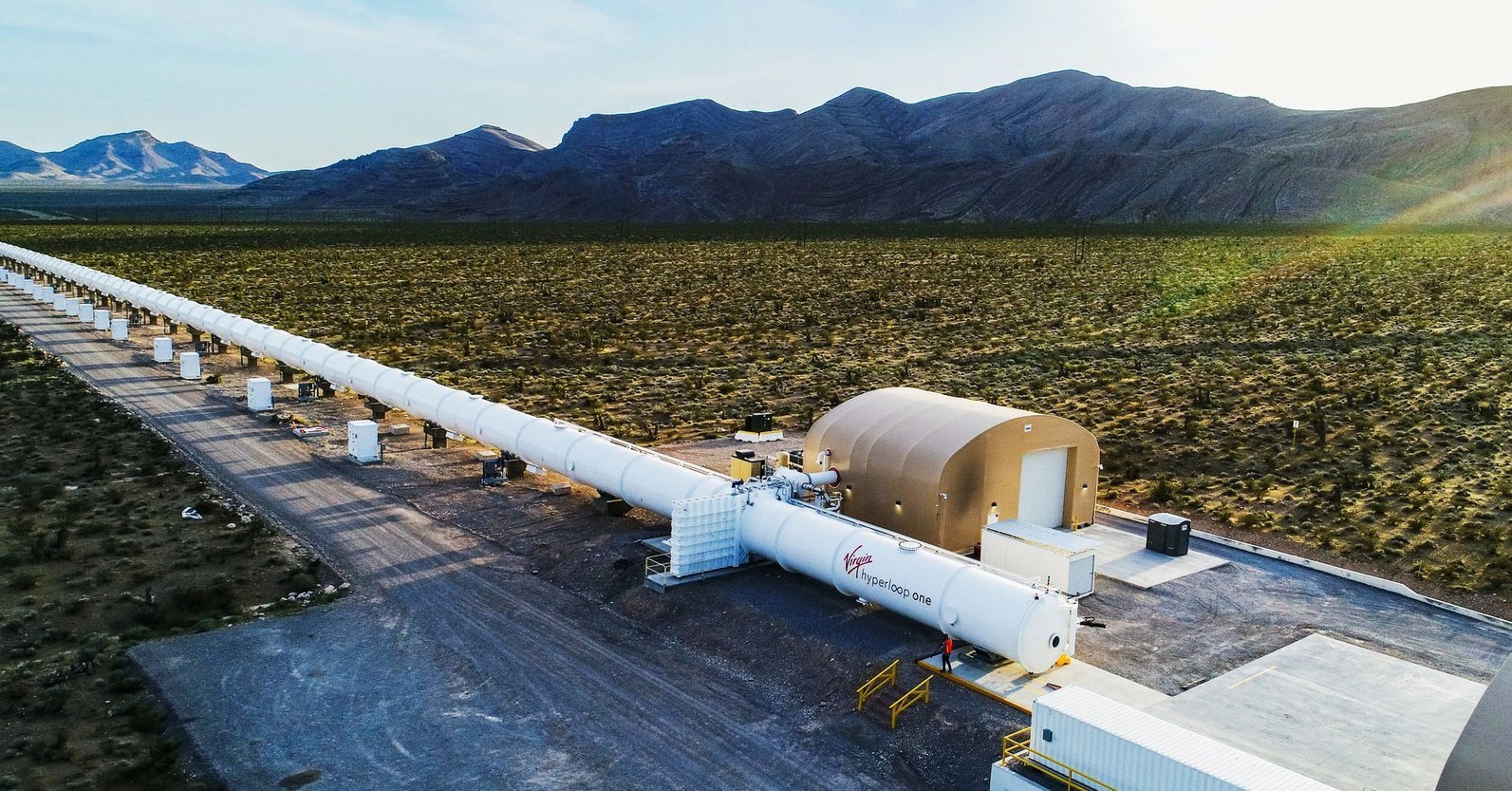“This is disruptive technology, and it’s changing the way we think about moving passengers,” says Walder. “But unlike other disruptive technologies—like Uber coming into cities—hyperloop is something that has to work collaboratively and cooperatively in partnership with them.” Turns out you can’t just start building people tubes without talking to local governments.
Virgin Hyperloop One wants to work with many cities. It has a provisional agreement with the government of the Indian state of Maharashtra to build a hyperloop between the cities of Punne and Mumbai, and hopes to start construction on a 6.8-mile test loop next year. The company is working on very early stage feasibility studies with the American states of Ohio and Missouri. And it has opened conversations with the UAE, Finland, Sweden, the Netherlands, Russia, and Estonia. The company also has a 1,600-foot test track in the Nevada desert.
The company also announced today that Sultan Ahmed bin Sulayem will serve as chairman. Bin Sulayem is currently the CEO and chairman of DP World, Dubai’s port operator and the largest investor in Virgin Hyperloop One, and will replace recently departed chairman Richard Branson.
Transit advocates and professionals have often argued that moonshot-like technologies like hyperloops are shiny distractions—that governments should use their time and money to create fast, frequent, and usable transit instead of finding (and debugging) the next new thing. So a few reacted with surprise when they heard Walder, a steadfast transit realist, was getting into hyperloop.
“‘Intriguing’ is a good word,” says Bruce Schaller, a former New York City transportation official who is now a consultant. “Walder had already moved away from the mainstream transit type of job, but if you thought running a bikeshare company was a little bit novel…” Schaller laughs. “You haven’t heard anything yet.”
Walder says he’s excited by the challenge of hyperloop, and the prospect that the new transportation option could reorder every part of city life. “Hyperloop could help us reimagine the ways we build cities and satellite cities, and make travel incredibly simple,” he says. “It’s an incredible new technology, but we have to move from being at the science fair to turning this into a real project.” Which is, of course, his new job.
Sourced through Scoop.it from: www.wired.com



Leave A Comment